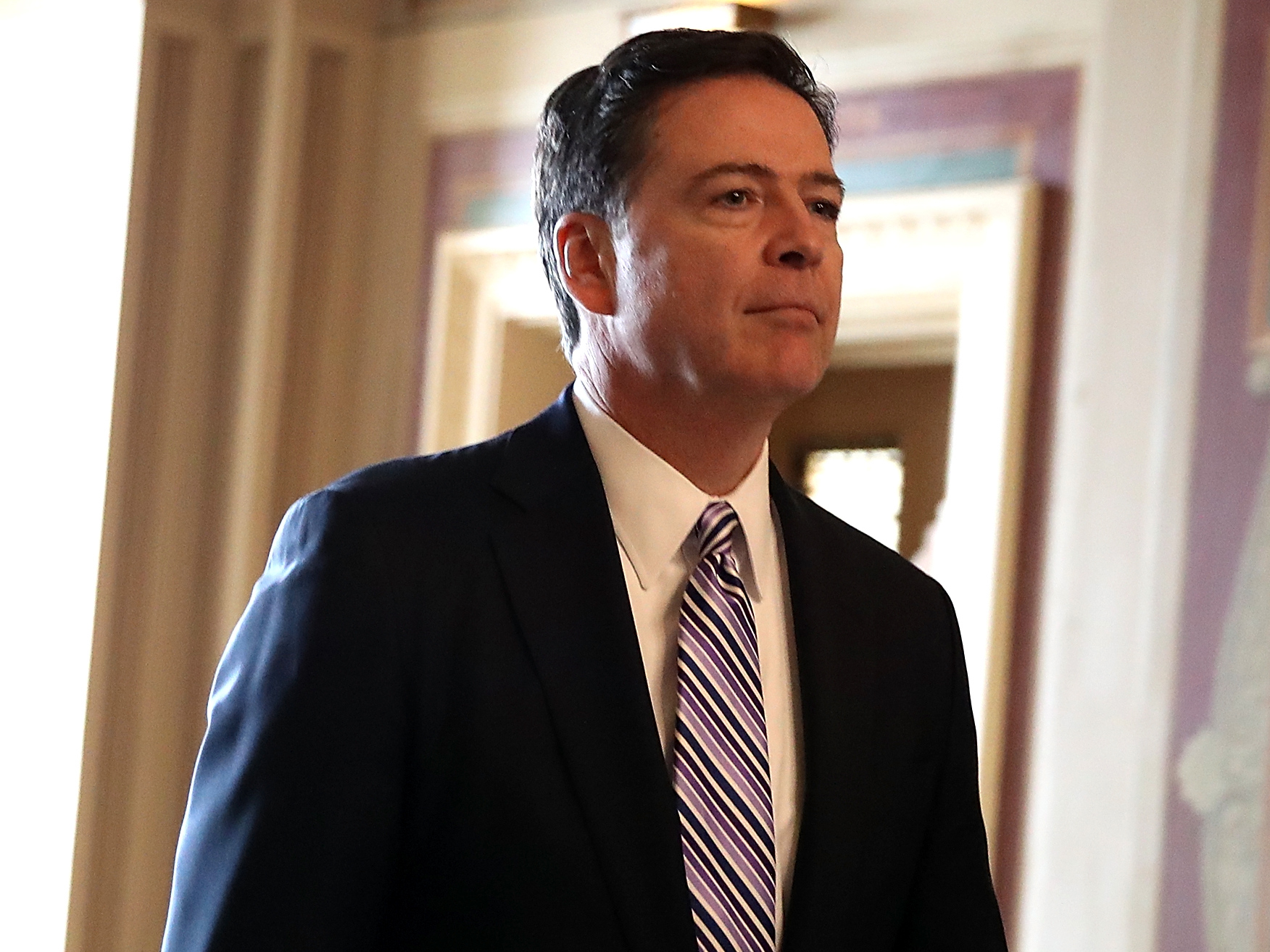FBI Director James Comey began his opening statement to the House Intelligence Committee in Monday’s highly anticipated hearing on Russian interference in the 2016 US presidential election with the revelation that his agency was investigating potential ties between President Trump’s campaign and Russian efforts to influence the election.
Comey, who prefaced his announcement by saying it’s bureau practice not to “confirm the existence of ongoing investigations,” particularly those that involve classified information, said this was an “unusual circumstance” in which it was in the public interest to do so.
“I’ve been authorized by the Department of Justice to confirm that the FBI, as part of our counterintelligence mission, is investigating the Russian government’s efforts to interfere in the 2016 elections, and that includes investigating the nature of any links between individuals associated with the Trump campaign and the Russian government,” Comey said, “and whether there was any coordination between the campaign and Russia’s efforts. As with any counterintelligence investigation, this will also include an assessment of whether any crimes were committed.”
“Because it is an open, ongoing investigation and is classified, I cannot say more about what we are doing and whose conduct we are examining,” he added.
Comey said on Monday that he had met last week with congressional leaders for a briefing on the details of this investigation but could not go into details.
"I know that is extremely frustrating to some folks, but that is the way it has to be," Comey said.
Trump, his administration, and campaign staffers have all denied at length any connections to Russia's efforts at meddling in the 2016 election. But communications during the campaign between high-level Trump officials such as former National Security Adviser Michael Flynn and Attorney General Jeff Sessions have emerged in the past few months. The content of the conversations between those people was unclear.
Lower-level Trump campaign affiliates and confidants, such as Carter Page and Roger Stone, have also been linked to either Russian officials or leakers of hacked Democratic National Committee and Hillary Clinton campaign emails. In Stone's instance, he has admitted that he had a back channel with WikiLeaks, the operation that leaked hacked emails.
The Russia-related controversy hanging over the early days of the Trump administration led to the ousting of Flynn from his post as national-security adviser just weeks into Trump's presidency.
"The Department of Justice and Trump administration must allow Director Comey's investigation to move forward without any interference, meddling, or political pressure of any kind whatsoever," Senate Minority Leader Chuck Schumer said in a statement shortly after Comey's public revelation. "The possibility of coordination between the Trump campaign and Russian officials is a serious, serious matter."
Earlier on Monday, ahead of the House hearing, Trump took to Twitter to attempt delegitimizing the Russia story, which he has done vigorously since his stunning November electoral victory.
"The Democrats made up and pushed the Russian story as an excuse for running a terrible campaign," he said. "Big advantage in Electoral College & lost!"
In an earlier tweet, he called the allegations of collusion between his campaign and Russia "fake news."
"James Clapper and others stated that there is no evidence Potus colluded with Russia," Trump wrote. "This story is FAKE NEWS and everyone knows it!"

